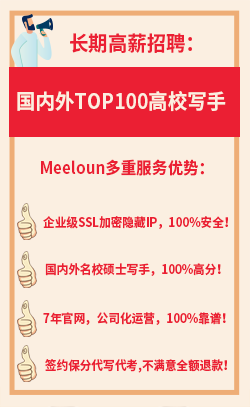英文Reference常见问题解决方法
发表时间:2016-07-30 11:08:28 作者:admin 阅读:184次

reference令很多同学感到头疼,的确,我们在写作时,既要考虑reference的选择,还得考虑文章需要多少reference,什么时候该使用reference,一篇essay需要引用多少reference才不算多?通过了解正确的reference引用方式,可以减少你写作的压力。下面这篇文章将解决你的这些问题。
Essay referencing can be a headache at university. How many references do you need? When should you use a reference。 Should you use references even when you haven’t used a direct quotation? How many references are too many。 By knowing how to reference properly, you can reduce the stress involved in your essay writing.
To help make essay referencing easier, we’ve tackled a few of those niggling questions that should make the process a little smoother.
Why does referencing matter
Including references in your essay is your way to show your markers that you’ve truly engaged with your subject matter. It is also important as it proves that you’ve read the key sources which relate to your topic. They additionally show that you’ve thought carefully about how each source relates to the subject you’re writing about. The more helpful references you include, the more well-informed you appear to be about your topic. It’s not always about quantity, either. Quality sources which really inform your essay are really worth including.
Including a bibliography is good academic practice. If you go on to study further, write more about your subject or publish your work, giving kudos to the writers whose work you took information and inspiration from is essential. A bibliography also provides a helpful resource you can go back to and use for future work.
How many references is too many references
Of course, it is possible to use too many references. If you are using references just to show off all the books you’ve read, this will be obvious and will not impress your markers. You need to choose the sources which really contribute to your essay; supporting your argument, contesting it or prompting interesting, relevant questions.
Remember, markers also want to see evidence of your own, original thinking. Using too many references does not leave much room for your personal standpoint to shine through. As a general rule, you should aim to use one to three, to support each key point you make. This of course depends on subject matter and the point you are discussing, but acts as a good general guide.
It can be useful to have a best practice breakdown of your essay to help you work out how many references to use. Here’s a rough guide to help you get the balance right for any piece of academic work:
● Introduction.
Your introduction should make up approximately 10% of your essay. You may want to use one or two references to define your topic in this section, depending on your word count.
● Body.
The main body of your essay (which will include the key points in your argument) should make up approximately 75% of your essay.
For example: In a 2000 word essay, you will have 1500 words to use. Each main point you make should typically use 1-3 paragraphs, which should average around 200-400 words in total. This will give you room for around 5 key points, each supported by 2 or 3 references. Try and use direct or primary references where possible. Sometimes you’ll need to use in-text references, too.
● Conclusion.
Your conclusion should account for around 15% of your essay. You may wish to use 1-3 references to lend authority to your concluding statements.
Of course, it is really hard to suggest exactly how many references your essay should include. This depends totally on the subject matter and word count. A philosophy essay, for example, may have a lot of critical thinking and be quite theory-heavy, and for this reason you may need more references than a typical English Literature Essay. This is just an example – you’ll need to consider your own subject matter and topic.
When to use references
References aren’t just used to give credit for quotations. They can be used to indicate that an idea, concept, fact or theory has come directly from a particular reference. Other instances when references must be used include:
● Quotes
● Diagrams
● Illustrations
● Charts
● Pictures
● Information or ideas from:
- Websites
- Books
- Magazines
- Essays
- Newspapers
- Interviews
- Television
- Radio
- Movies
- Music
- Computer programmes
- Any external source



